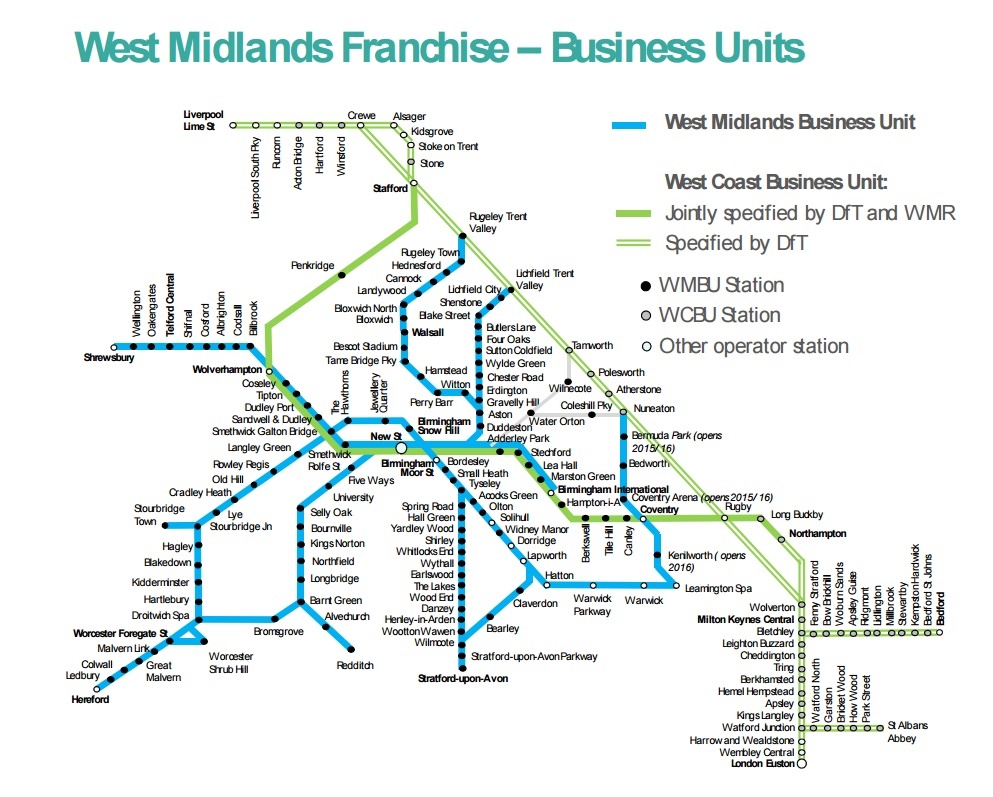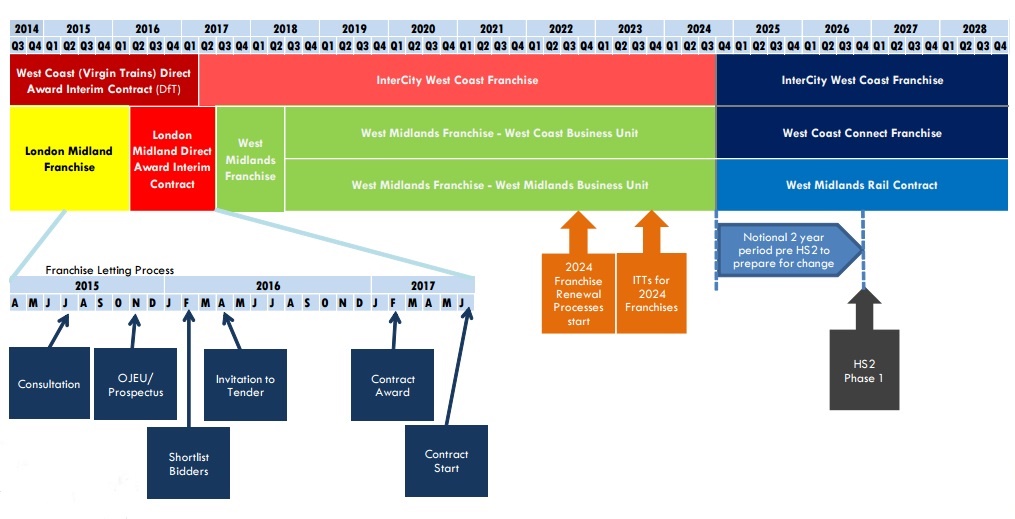04.11.15
West Midlands Rail set to enter DfT partnership agreement
The formal establishment of West Midlands Rail (WMR), a proposed body calling for further devolution of passenger services in the region, seems to be well underway as its members revealed it will enter into a partnership agreement with the Department for Transport.
Northamptonshire County Council says in a cabinet meeting report that it expects that WMR, whose proposals have been ongoing for two and a half years, will soon set out its rights and obligations in relation to the new West Midlands rail franchise.
The franchise, currently provided by Govia’s London Midland, was extended to March 2016 with negotiations underway to stretch this to October 2017.
But partner authorities in the West Midlands, in association with Centro, have been developing a proposal to split the franchise in order to increase local influence over rail services.
Although the chances of this going forward were looking bleak in 2014, it seems that transport secretary Patrick McLoughlin has now made a commitment to work with these authorities. According to the cabinet report, the process for the letting of the new West Midlands franchise is already being developed.
The authorities – 14 metropolitan, shire and unitary bodies – expect that the existing London Midland franchise will be cut into two business units early in the new franchise term.
One of these halves will be for the West Midlands local rail network, while the other will cater for services operated predominantly on the West Coast Main Line.
 Click on the image to enlarge it.
Click on the image to enlarge it.
Since the franchise would be let by the DfT, financial and contractual risk will remain with central government – but following its award, WMR expects that it will jointly manage the franchise in partnership with the department. Full devolution is expected by 2024.
“This will allow WMR Ltd to develop experience and capability in the management of local rail services, as it is a longer term aspiration of the partner authorities that future rail franchises might be entirely devolved to local control, as is the case on Merseyside,” Chris Wragg, of the transport planning & development team at the Northamptonshire council, said.
This gradual transfer of power from central government to WMR is in line with McLoughlin’s concerns in 2014, when he said in a letter to the Wolverhampton City Council leader: “We consider that a phased approach to handing over responsibility to a devolved body is preferable to a West Midlands body taking full responsibility from day one.”
 Click on the image to enlarge it.
Click on the image to enlarge it.
It is also expected that, during the next franchise term, the options for further devolution of funding and powers will be explored.
But, if changes are made to the expected partnership agreement between the rail body and the DfT, proposals would require the approval of a 75% majority of WMR members.
The body’s key objectives remain to promote the devolution of passenger rail services in the West Midlands and Northamptonshire to local transport authorities, to manage the performance of these services pursuant to rail franchise agreements, and to improve them and their associated facilities.
WMR members also want to develop and oversee the implementation of a better long-term strategy for rail services in the regions.
Governance structure and board members
WMR’s devolved structure would be strategically steered by local politicians, while robust arrangements would enable participating authorities to have a voice.
Each of the partner authorities would automatically become a member of WMR, with a 75% vote required to admit any further members.
Guidance and democratic accountability would be handed to a board of directors formed by the leaders or other representatives appointed by the authorities involved. Only partner authority members who are local transport authorities for their areas will be able to vote at members meetings.
Although WMR was formally set up by Centro as a dormant company in 2014, the Integrated Transport Authority’s operational arm will cease to be a member once partner authorities formally join the body.
The board, expected to meet quarterly, in still being developed. A cabinet meeting on 10 November is expected to approve the appointment of Cllr Michael Clarke as its principal director and Cllr Andre Gonzalez de Savage as his substitute director.
The organisation expects that partner authorities will join and appoint directors before a meeting scheduled for 4 December 2015 – intended to be the first meeting of the new board of directors.
Administrative support for the board will be provided by Centro.
Consultation has already been undertaken with the authorities to determine the best governance arrangements for WMR, but it and DfT are jointly consulting on the objectives for the new West Midlands rail franchise starting in December.
The current governance framework proposal was the favoured of three alternative options, one of which would have placed Centro at the centre of all decisions using its existing powers.
Funding
As previously agreed, funding for the WMR is split 75/25 between metropolitan districts and shire/unitary authorities. For metropolitan districts, this cash is provided through the Centro levy.
After the new West Midlands franchise starts in October 2017, the “current assumption” is that most WMR operation costs will be covered by the DfT, with contributions from authorities being “very modest”.
RTM is yet to receive a comment from the DfT regarding these updates.
(Top image c. Mattbuck)